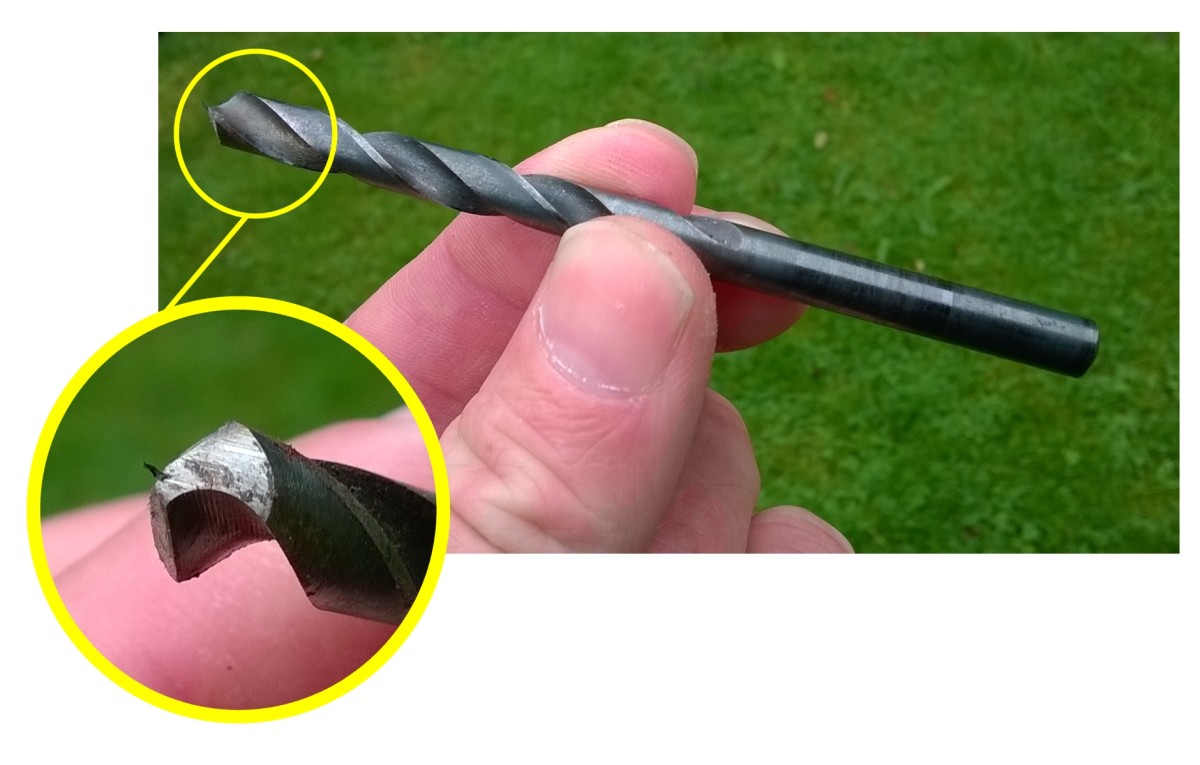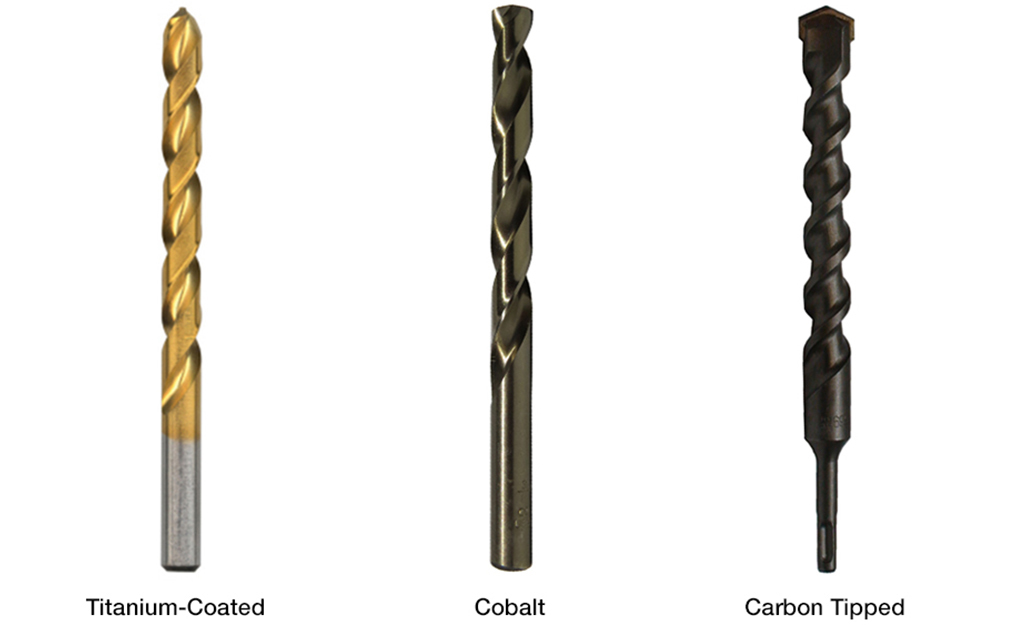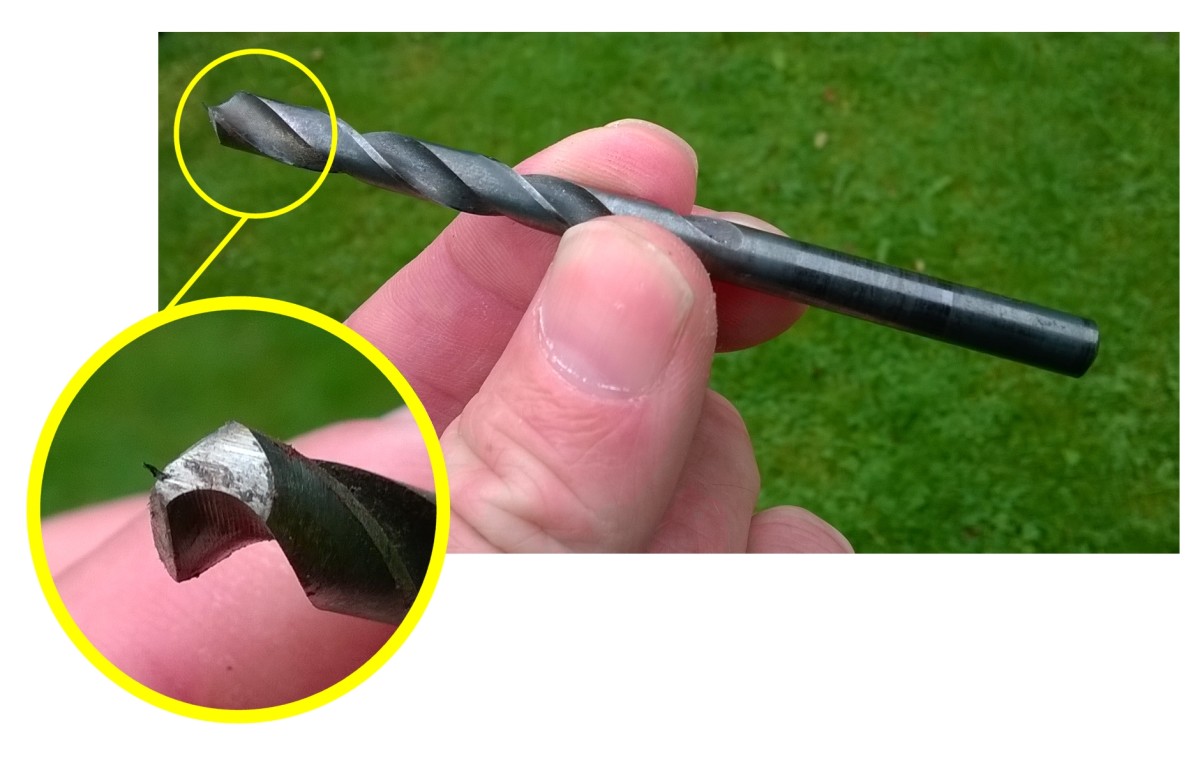Have you ever wondered if you can use metal drill bits for masonry projects? Well, you’re in the right place to find out! In this article, we’ll explore the question, “can metal drill bits be used for masonry?” and provide you with all the information you need to know. So, let’s dive right in and uncover the answer together!
When it comes to drilling into materials like concrete, brick, or stone, using the right type of drill bit is crucial. While metal drill bits are great for drilling through metal surfaces, they may not be the best choice for masonry work. But why is that? Stick around, and we’ll break it down for you.
Understanding the differences between metal and masonry drill bits is essential to ensure successful drilling outcomes. So, let’s explore the characteristics of each type and discover why using metal drill bits for masonry might not be the best idea.

Can Metal Drill Bits Be Used for Masonry?: The Ultimate Guide
Metal drill bits are versatile tools that are commonly used for drilling holes in materials like wood, metal, and plastic. However, many DIY enthusiasts and professionals often wonder if metal drill bits can be used for masonry projects. In this comprehensive guide, we will explore this question in detail and provide you with all the information you need to know about using metal drill bits for masonry. From the different types of drill bits to the techniques and tips for drilling into masonry, we will cover it all.
The Difference Between Metal and Masonry Drill Bits
Metal drill bits and masonry drill bits are designed for two different purposes. Metal drill bits are typically made from high-speed steel (HSS) or cobalt and are designed to cut through metal materials. On the other hand, masonry drill bits are specially designed with a carbide tip to effectively drill into dense materials like concrete, brick, and stone. While both types of drill bits have a similar appearance, their composition and design make them suitable for specific applications.
The Limitations of Using Metal Drill Bits for Masonry
Using metal drill bits for masonry projects can have limitations and may not always yield the desired results. One of the main limitations is the composition of metal drill bits. Metal drill bits are not as tough as masonry drill bits and may not be able to withstand the high impact forces that occur when drilling into hard materials like concrete. This can result in the drill bit getting dull quickly, leading to slower drilling and decreased efficiency. Additionally, the lack of a carbide tip on metal drill bits can make it challenging to achieve clean and precise holes in masonry materials.
Tips for Using Metal Drill Bits for Masonry
If you find yourself in a situation where you need to use a metal drill bit for a small masonry project, there are a few tips you can follow to increase your chances of success.
First and foremost, it is crucial to choose the right type and size of metal drill bit. Look for metal drill bits that are specifically designed for masonry applications, as they will have a carbide tip for increased durability. Additionally, make sure to select a drill bit size that matches the diameter of the hole you need to drill. Using the wrong size can lead to inaccuracies and difficulties during the drilling process.
Next, it is essential to use the correct drilling technique. When using a metal drill bit for masonry, it is recommended to apply a moderate amount of pressure and drill at a slower speed compared to drilling into metal. This will help prevent the drill bit from overheating and getting dull too quickly. It is also crucial to periodically withdraw the drill bit from the hole to clear away the debris and prevent the bit from getting stuck.
Lastly, ensure that you have the appropriate safety equipment when drilling into masonry. This includes wearing safety goggles to protect your eyes from flying debris and using a dust mask to prevent inhalation of harmful particles. It is also a good idea to secure the workpiece firmly in place to avoid slips or accidents during the drilling process.
The Benefits of Using Masonry Drill Bits
While metal drill bits can be used for small masonry projects in a pinch, it is essential to recognize the benefits of using masonry drill bits for such applications. Masonry drill bits are specifically designed to withstand the high impact forces and abrasive nature of drilling into masonry materials. The carbide tip on masonry drill bits ensures excellent durability and resistance to wear, allowing for faster drilling and cleaner holes in masonry. Additionally, masonry drill bits often have a unique flute design that helps efficiently remove debris from the hole, resulting in smoother drilling and increased efficiency.
Masonry Drill Bits vs. Metal Drill Bits: A Comparison
To help you better understand the differences between masonry drill bits and metal drill bits, let’s compare them in terms of various factors:
1. Material Composition: Masonry drill bits have a carbide tip, while metal drill bits are typically made from high-speed steel or cobalt.
2. Durability: Masonry drill bits are more durable and resistant to wear than metal drill bits due to their carbide tip.
3. Drilling Speed: Masonry drill bits allow for faster drilling in masonry materials due to their unique flute design and carbide tip.
4. Precision: Metal drill bits offer better precision when drilling into metal materials, while masonry drill bits are designed to create clean and precise holes in masonry.
5. Versatility: Metal drill bits are more versatile and can be used for a wider range of materials, while masonry drill bits are specifically designed for masonry applications.
Tips for Choosing the Right Drill Bit for Your Project
When deciding whether to use metal drill bits or masonry drill bits for your project, it is crucial to consider the material you will be drilling into and the desired outcome. If you are working primarily with metal and occasionally need to drill into masonry, having both types of drill bits in your toolbox will provide you with the versatility you need. However, if your project primarily involves masonry materials, investing in high-quality masonry drill bits will ensure better results and increased efficiency.
In conclusion, while metal drill bits can be used for small masonry projects in a pinch, it is generally recommended to use masonry drill bits for drilling into masonry materials. Masonry drill bits are specifically designed to withstand the high impact forces and offer superior durability and precision. By following the tips and recommendations provided in this guide, you can ensure successful drilling and achieve the desired results in your masonry projects.
Can Metal Drill Bits Be Used for Masonry?
When it comes to drilling in masonry surfaces, using the right tools is crucial. While metal drill bits are designed for drilling through metal, they may not be suitable for masonry. Here are some key takeaways to keep in mind:
- Special masonry drill bits are recommended for drilling into materials like brick, concrete, and stone.
- Masonry drill bits have a carbide or diamond tip that is capable of drilling through tough masonry surfaces.
- Metal drill bits may not be able to effectively drill through masonry and could become dull or break.
- Using metal drill bits on masonry surfaces can also lead to poor drilling accuracy and potentially cause damage.
- To ensure successful drilling in masonry, it’s best to use the appropriate masonry drill bits for the job.
Frequently Asked Questions
When it comes to drilling into masonry, using the right tool is essential for achieving the desired results. While metal drill bits are commonly used for various applications, can they be used for masonry? Let’s explore some common questions.
Can metal drill bits be used to drill into masonry?
No, metal drill bits are not suitable for drilling into masonry. Masonry surfaces, such as brick, concrete, or stone, are much harder and tougher than metal. Using a metal drill bit on masonry can lead to a variety of issues, including reduced drilling efficiency, overheating, and even damaging the bit itself.
Instead, it’s recommended to use specifically designed masonry drill bits. These drill bits have a carbide or diamond tip, which can handle the hardness of masonry surfaces. They are designed to efficiently penetrate masonry materials, providing cleaner and smoother holes.
Why are metal drill bits not suitable for masonry?
Metal drill bits are not recommended for masonry drilling due to several factors. Firstly, masonry surfaces are harder and more abrasive than metal, which can cause metal drill bits to wear out quickly. Additionally, masonry materials such as concrete can generate a significant amount of heat during drilling, which can cause the metal bit to become dull or even lose its temper.
Furthermore, metal drill bits are not designed with the necessary flute shape or cutting edges optimized for masonry drilling. Masonry drill bits, on the other hand, have specialized geometries and materials, such as carbide or diamond tips, that are better suited for the demanding nature of drilling into masonry surfaces.
What types of drill bits are suitable for drilling masonry?
When it comes to masonry drilling, there are two commonly used types of drill bits: masonry drill bits and hammer drill bits. Masonry drill bits are ideal for general-purpose masonry drilling, while hammer drill bits are specifically designed for use with hammer drills, which provide a pulsating hammering action.
Masonry drill bits typically have a carbide or diamond tip, allowing them to withstand the hardness of masonry surfaces. Hammer drill bits, besides having carbide or diamond tips, also have grooves or flutes that help evacuate the debris generated during drilling. These grooves prevent clogging and enable faster drilling.
What are the key features to look for in masonry drill bits?
When choosing masonry drill bits, there are a few key features to consider. Firstly, look for drill bits with a carbide or diamond tip, as these materials are well-suited for drilling into masonry surfaces. Additionally, consider the size of the drill bits, ensuring they match the diameter of the holes you need to create.
It’s also important to select drill bits with a reinforced shank, as masonry drilling can exert significant force. Reinforced shanks help prevent breakage and enhance overall durability. Finally, some masonry drill bits come with specialized flute designs that aid in debris removal, reducing the risk of clogging and improving drilling speed.
Can you use a regular drill with masonry drill bits?
While it is possible to use a regular drill to drill into masonry with masonry drill bits, it is generally more efficient to use a dedicated hammer drill. The hammer drill’s hammering action is specifically designed to provide additional force, aiding the drilling process in tough masonry materials.
Regular drills without the hammering action may struggle or take longer to drill through masonry surfaces. However, for lighter masonry jobs, such as drilling into soft bricks or mortar, a regular drill with masonry drill bits can still be effective, albeit at a slower pace. It’s important to note that using a regular drill for demanding masonry jobs may decrease the drill bit’s lifespan.

Summary
Drilling into masonry requires special drill bits made for the task. While metal drill bits are great for wood or metal, they are not suitable for masonry.
Masonry materials like brick or concrete are harder and require a different type of drill bit, such as a carbide-tipped masonry bit. These bits have a specially designed tip that can bore through tough materials without getting damaged. So, it’s important to use the right drill bits for the job to ensure safety and efficiency.
